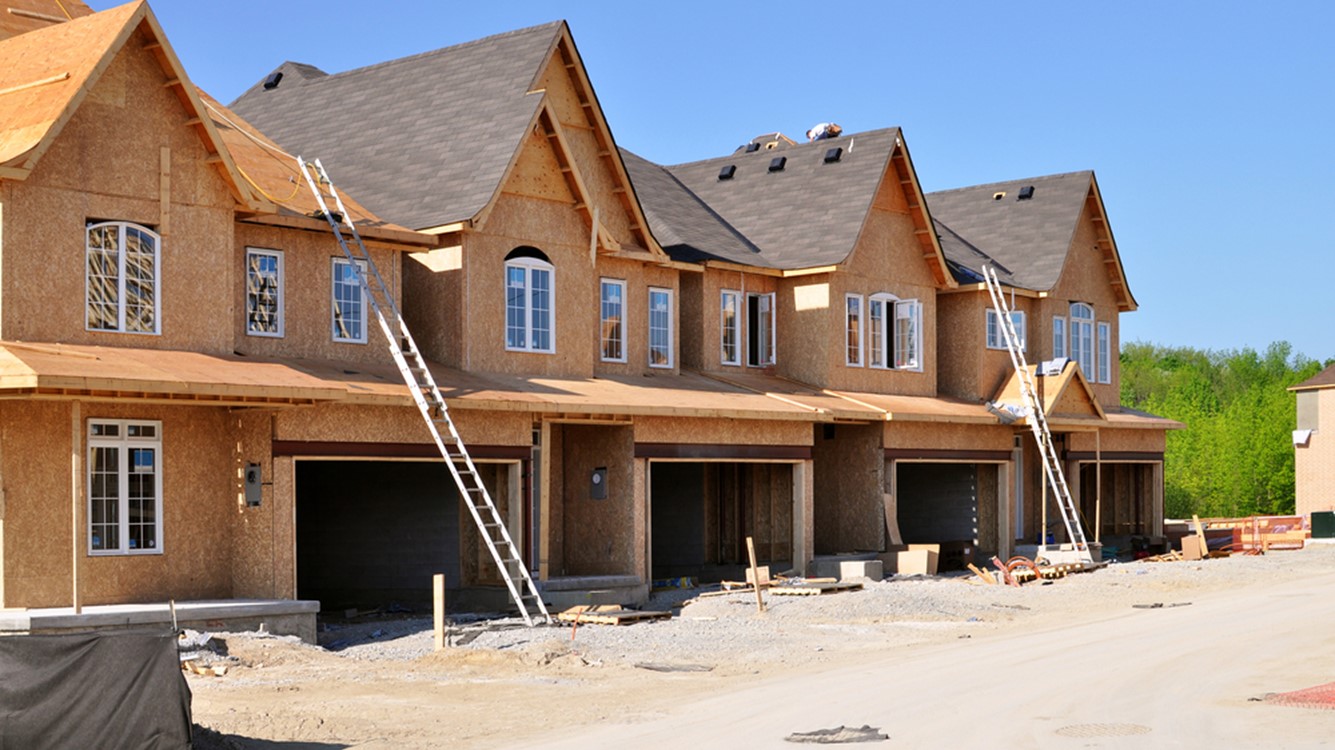Unusual strength in housing at year-end
Multifamily gains rely on new household formation.

January 17, 2025
Housing starts, another name for new home construction, jumped 15.8% in December from stronger activity in both single- and multifamily building. Compared to a year ago, starts dropped 4.4%.
Single-family starts remained above one million units to cap off the year. The South, where about 60% of starts occur, was flat while all other regions posted strong gains. Completions ticked down slightly to 948,000 units; there is a speed limit of about one million units per year that builders can produce. Labor shortages, high land and materials costs, and tight lending conditions all pose challenges to ramping up construction.
By the end of 2024, mortgage rates were trending higher, even as the Federal Reserve was cutting interest rates. The 30-year fixed mortgage rate follows the 10-year Treasury bond yield, which had been rising since the Fed’s first rate cut in September. A slight reprieve in mid-December helped some buyers to come off the sidelines. However, that will be short-lived; mortgage rates moved above 7% by mid-January.
Some builders have pivoted to smaller, more affordable homes in light of affordability problems in recent years. First-time buyers are priced out of the housing market. The median age of the first-time buyer rose to 38 years in 2024, the highest on record since the early 1980s.
Multifamily starts ended the year on a strong note with 418,000 starts recorded, a 58.9% jump from the previous month. However, that activity has been waning while builders work through a record backlog. The multifamily series is notoriously noisy and subject to large swings. Nearly 600,000 units were completed in 2024, the highest level since the 1970s. That has pushed many builders to pivot away from new multifamily construction; applications for permits also fell. More supply in some markets has helped reduce rents, the effects of which are beginning to show up in inflation data. (That doesn't mean rents are becoming cheap.)
The absorption of new units coming on line has been strong. Younger workers are seeing a fairly strong job market and are able to move out of their parents’ homes or roommate households. According to the Census Bureau, the share of 25–34-year-olds who moved out of their parents’ homes in the last three years was about 800,000. Most of those are renting, given the affordability challenges of the housing market. However, the number of those living at home rose dramatically during the pandemic, which skewed the size of the subsequent drop. Additionally, nearly nine million immigrants came to the US in the last three years, all households needing somewhere to live.
Building permits, an indicator of future construction, fell slightly in December on lower multifamily permits. Single-family permits grew 1.6%. Strong single-family permits signal that builders are still anticipating strong demand in 2025 as demographic tailwinds work in their favor. Weaker multifamily permits may be short-lived as rents are expected to rise later in the year with lower inventory coming on line.
Builder sentiment, as captured by the National Association of Home Builders, remained in pessimistic territory in January but ticked up slightly from the prior month. Within the index, current sales conditions approached optimistic territory, while foot traffic was lackluster. Builders are expecting stronger sales in the second half of the year when they anticipate lower interest rates will help bring back buyers. The risk is that the average mortgage rate may not fall very much.
Residential investment will remain a drag on overall growth in the first two quarters of 2025.

Yelena Maleyev
KPMG Senior Economist
Bottom Line:
Long-term interest rates matter more for the housing market than what the Federal Reserve does with short-term rates. A mortgage rate above 7% keeps potential buyers sidelined because they are also facing high housing prices, increased tax and insurance obligations and tight lending conditions. The housing market thaw may not come until later in the year; residential investment will remain a drag on overall growth in the first two quarters of 2025.
Explore more

Multifamily construction plummets
Builders remain pessimistic.

KPMG Economics
A source for unbiased economic intelligence to help improve strategic decision-making.
Subscribe to insights from KPMG Economics
KPMG Economics distributes a wide selection of insight and analysis to help businesses make informed decisions.
Meet our team
